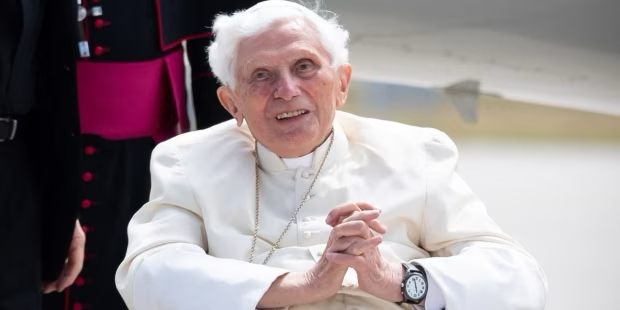tradition
-
What is the use of tradition?
Tradition requires constant conversion. It's no picnic! Tradition requires constant effort. And even the most important effort: that of not forgetting. Tradition is of little use for remembering; it serves primarily to not forget. It loses its Continue reading
-
Why this hatred of authority?

Authority resembles those secret agents dear to Graham Greene who conceal their identity so as not to lose it further during a bad encounter. It still has a few admirers who are fond of it and deploy treasures of ingenuity to define it, redefine it, so that it is understood in its time. To do this, they bring it closer to the Continue reading
-
What is the problem with the Mass of Paul VI?
More than fifty years ago, the Catholic Church adopted a new Mass that broke with Church tradition in an unprecedented way. The reformers, however, had not anticipated that the traditional Mass would outlive them. They were even convinced of the opposite. And they used every means at their disposal to... Continue reading
-
Letter to Pope Francis regarding the Mass
Preamble This letter to Pope Francis was first written for The Roman Way 1 to bear witness to the beauty and efficacy of the traditional Roman rite and to bear witness to the shock caused by the motu proprio, Traditionis custodes, published on July 16, 2021 by Pope Francis. Holy Father, I was extricating myself from a terrible Continue reading
-
Benedict XVI in Paradise!

—Is it morning or evening? My breath stopped, then started again. As if it were giving signs of a defect. It was leaving me. The pneuma was leaving me. I breathed that I was ready. My God, how I love it! But, the breath returned, as if it had gone out on an errand. The memores is out. Continue reading
-
Paradise Lost by Sebastien de Courtois
There is a nostalgia for a lost paradise. We all feel it, more or less; it connects us to Original Sin and the Fall. This illness torments pure souls. It languishes and agitates. A youthful illness if ever there was one, a romantic madness, this nostalgia is at the heart of Sébastien de Courtois's novel, Continue reading
-
Craftsman's Prayer
12th Century Monastic Prayer Teach me, Lord, to use well the time You give me to work… Teach me to unite haste and slowness, serenity and fervor, zeal and peace. Help me at the beginning of the work. Help me in the heart of the labor… And above all, fill the gaps in my work Yourself. Continue reading
-
Antigone, rebellious and intimate (7/7. Love)
7th and final part: Love Antigone's desire is familial; she does not want to leave her brother unburied; Creon, on the other hand, wants to assert himself as king and demonstrate his power. Antigone favors family ties that embody love and reveal a being. Creon establishes his power by signing a bill that must Continue reading
Antigone , stupidity , counter-revolution , ethics , history , intimacy , forgiveness , politically correct , religion , totalitarianism , tradition -
The permanent conversion
Contrary to what is often said or believed, tradition requires constant conversion. Tradition is not a sinecure, a life spent at the spa! Tradition requires constant effort. And even the most important effort: not to forget. There is no tradition unless it is living, and living Continue reading
-
From traditional…
"We are dwarves perched on the shoulders of giants; we see more than they do, and further; not that our gaze is piercing, nor our height high, but we are raised, elevated, by their gigantic stature." This quote from Bernard of Chartres (12th century) found in Rémi Brague's latest book, Modérément moderne (Editions Flammarion), Continue reading